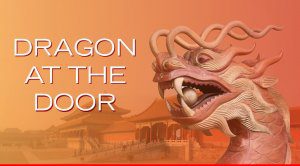 Trudeau should be wary of pursuing to Canada-China free trade agreement during his visit to China, writes Charles Burton.
Trudeau should be wary of pursuing to Canada-China free trade agreement during his visit to China, writes Charles Burton.
By Charles Burton, Dec. 4, 2017
The Government Statement announcing Prime Minister Trudeau’s December 3 to 7 visit to the People’s Republic of China indicates that the purpose of the visit is to “promote a progressive trade agenda” as well as “frank dialogue on human rights issues like good governance, freedom of speech, and the rule of law.” During his time in China, it is likely Trudeau will announce Canada’s commitment to formal binding negotiation of a Canada-China Free Trade Agreement.
Mr. Trudeau, on the one hand, wants to satisfy big business interests by committing to free trade negotiations, while on the other reassuring ordinary Canadians that Canada will continue to effectively engage China on human rights and environment. But a “progressive trade agenda” linking commerce with labour rights or any other non-economic conditions is not something that China has shown any inclination to consider with other countries. It is unlikely that Canada will be allowed to set any precedent in this regard.
Moreover, the Government’s report on the “Public consultations on a possible Canada-China FTA,” carried out earlier this year, includes a litany of formidable barriers to medium-sized Canadian companies’ success in the Chinese market. These include arbitrary imposition of taxes and import duties and a multitude of other non-tariff measures, including demands for intellectual property transfer that over and over tip the balance against Canadian companies achieving fair and sustained access to the Chinese market.
Another relevant factor, among many, is the inability of the Government of Canada to get satisfaction for John Chang, a Canadian citizen imprisoned in China for more than 20 months over a customs valuation dispute. He is being held under harsh conditions in desperately failing health and denied family visits as the officials of the Chinese régime attempt to extract what amounts to a ransom of close to $20 million for his release. Mr. Chang’s firm’s assets in China have been seized. His spouse is held under house arrest in Shanghai.
Canadian public attention to this matter may lead to the Prime Minister successfully negotiating Mr. Chang’s repatriation to Canada, likely on medical grounds. But the fact remains that China is a dangerous and unstable business environment for all but the largest Canadian firms that have pre-existing close relationships with Chinese Communist business networks.
Insofar as the Canadian program to engage in “frank dialogue on human rights issues like good governance, freedom of speech,, and the rule of law,” in his report to the Chinese Communist Party’s 19th Party Congress in October, Party General Secretary Xi Jinping has made it crystal claim that “western-style” democracy, freedom of speech and a judiciary independent of Communist Party control is inconsistent with China’s “social and political context, its history, and its cultural traditions.” China will definitely not “mechanically copy the political systems of other countries.”
Moreover Prime Minister Trudeau is bound by Canada’s “Justice for Victims of Corrupt Foreign Officials Act (Sergei Magnitsky Law)” which came into effect in October. Recently 19 Venezuelan officials joined the list of Russian and South Sudanese officials on the Canadian Magnitsky sanctions list. As the Government explains, they are “responsible for, or complicit in, gross violations of internationally recognized human rights, have committed acts of significant corruption or both.”
There will considerable pressure for the same criteria to be applied to Canada’s important economic partners, including Saudi Arabia and China. But the loss of face to China of senior state officials being identified as complicit in the brutality of torture or of Chinese state toleration of extreme corruption on the part of factions in favour with Xi Jinping will certainly lead to angry retaliation and a significant downgrade of relations.
It is likely that Canada and China will agree to initiate formal negotiations for a free trade agreement while Mr. Trudeau is in China. Canada hopes to promote Canadian prosperity by achieving fair access to the Chinese market. Uncertainty over the US imposing tariff and non-tariff barriers on Canadian goods and services increases the pressure on Canada to proceed with free trade with China. But China may impose conditions on Canada in return, such as non-reciprocal right of purchase of Canadian energy and mining companies, Canada agreeing to an extradition treaty, and Canada ceasing to publicly engage China on policy differences over human rights and its military expansion in the South China Sea. These would not be acceptable to most Canadians.
So the Prime Minister faces a challenging quandary with regard to Canada-China Free Trade. He can respond the pressure of monied interests currently lobbying the Government hard to promote Canadian prosperity by going ahead with Free Trade with China, on essentially Chinese terms given the asymmetrical nature of the Canada-China relationship. But this would likely alienate the significant numbers of Canadians who put sustaining Canadian values ahead of economic expediency in foreign relations.
Ultimately it comes down to the question of whether Canada can reduce its economic dependence on an unreliable United States without unacceptable political costs for the current Government. How Prime Minister Trudeau can square this circle in Beijing remains to be seen.
Charles Burton is an Associate Professor of Political Science at Brock University in St. Catharines, Ontario and is a former Counsellor at the Canadian Embassy in Beijing.




